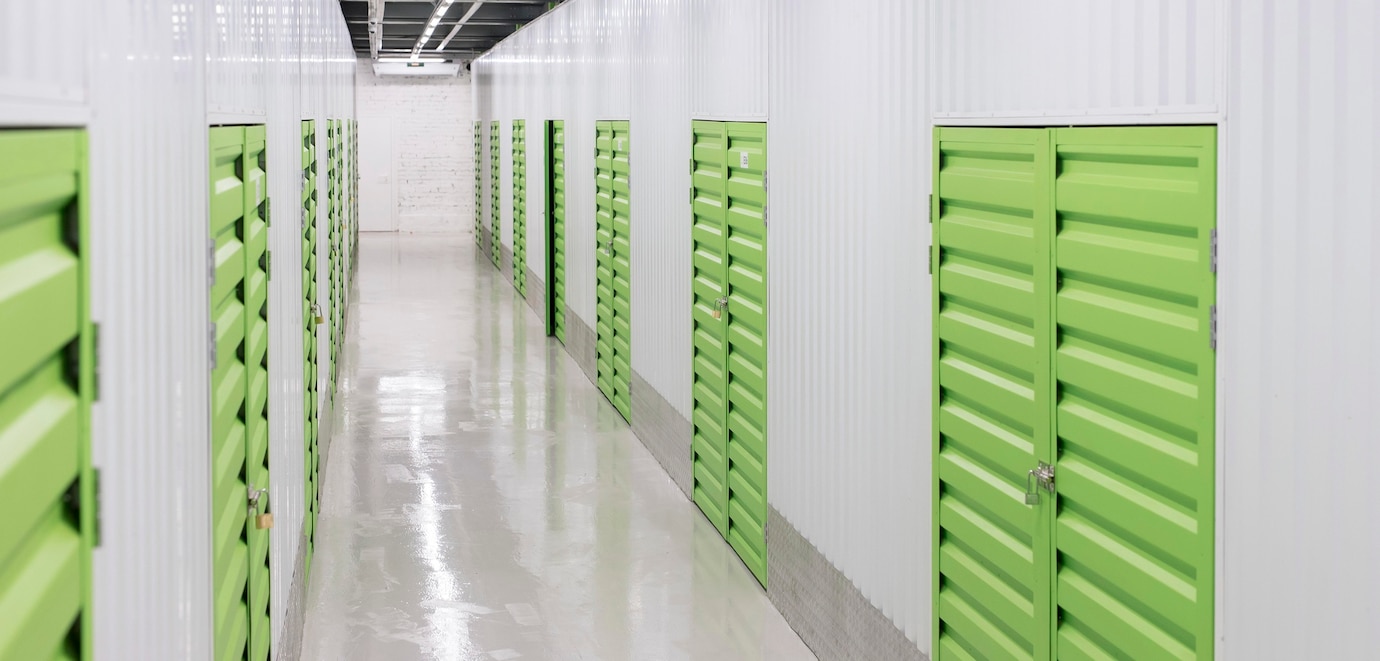Technology
How The Web 3 Revolution Will Change Everything
Published
2 years agoon
By
Max
Web3, bitcoin, blockchain technology, virtual reality/augmented reality, and the “metaverse” are concepts that are widely used interchangeably nowadays. I believe that people already have a more profound intuitive understanding of how VR and AR can change the future. Therefore, I’ll limit my article to how crypto & blockchain tech in the context of web3 will change the future since it’s a little more challenging to understand and abstract in its concepts.
While political terms like liberty, decentralisation, censorship, and authority are commonly used in discussions about this subject, technical specifics are also frequently used. These are all important, but in the end, whether web3 powered by cryptocurrency is the future will depend on the economic and productive value it brings and the potential improvements in quality of life.
Our actions and current situation
All web iterations are digital revolutions; more components of our analogue (physical) lives are moving online in addition to the creation of new digitally native (digital-first) experiences.
Web1 revolutionised information accessibility in the 1990s.
- Information and content seen online come from the real world.
- Anyone with an internet connection can now access information, which is neither a local nor a physical occurrence.
- Early web protocols support file transfers, emails, and web pages.
- Examples include personal websites, the online versions of Encarta and Encyclopedia Britannica, FTP, and MapQuest.
Web2 represents a revolution in experience, productivity, and connection (since 2000).
- Because of the convergence of hardware and software technologies, which transforms the static into the dynamic, we can now enjoy rich online interfaces and interactions.
- More and more of our lives are being lived online.
- In 1999, 2009, and 2019, compare the proportion of your daily attention that was spent online.
- Whether it’s for our work, relationships, hobbies, investments, etc., we now spend a significant portion of our lives online.
- People can now spend the majority of their lives online because the web2 environment and user interface are so rich.
- Additionally, we generate most of our goods digitally, consume the majority of them, and interact with others mostly through social media and messaging services.
- Robinhood, YouTube, Google Docs, Twitter, Instagram, WhatsApp, Facebook, and advanced home and health technology are a few examples.
Web3 is a revolution in value transfer, ownership, and coordination (2015-).
- I will analyse each of these web3 revolutions in greater detail in the part below titled “Web3 Paradigm Shifts.”
- But the first thing to remember is that a lot of the events that will take place in web3 had their origins in web2.
- It’s simple to overlook that the web2 era is still active and will continue to give rise to profitable new firms amid all the hubbub about web3.
- Let’s look at how some web2 advancements naturally lead to web3, which is powered by crypto.
- If you want to create a project based on new technology like Web 3.0, you should consider working with the top Web3 Development Company.
Web2 extensions in Web3
Enhanced and more robust networks
- Your neighbourhood, place of employment, family, and close friends from your adolescence may have been part of your networks in the early days of the internet.
- A mailing list or forum might have been something you belonged to if you were an experienced online user. Web2 networks have multiplied and are continuing to expand.
- You might have family and friend-specific WhatsApp groups, Facebook networks, Telegram channels, Instagram hashtags, and Twitter nooks.
- This network creation has been carried on with the introduction of the value network in web3. Examples include Polkadot, Solana, Ethereum, and many others; each currency represents a particular user network.
- These programmable currencies also have tokens built on top of them that any individual or group of individuals can issue.
- As a result, there is a growth in value networks that are nested within a larger, more powerful network with which it may communicate and exchange information.
- This is a surprisingly powerful invention since a value network may be added to any existing web2 network, including social networks, messaging networks, and content networks, as well as to brand-new networks.
- We have a wide variety of networks, but almost any network can be made profitable, tokenized, or rewarded, creating supercharged variations of those networks.
Explosion of formats, niches, and creative endeavours
- Even if we only consider web2 businesses that have recently been established, such as TikTok, Substack, Clubhouse, etc., there are a tonne of creative and lucrative niches for people to inhabit.
- When you consider how much simpler it is to share content across so many channels, it comes as no surprise that individual power and creative activity have expanded significantly over the past 20 years (also known as networks).
- In the web1 world, there were still a lot of Hollywood celebrities and best-selling authors.
- In web2, there are activists and famous people in every known media genre, subcategory, and format.
- The future of the web 3 is the ongoing expansion of platforms, markets, and content types.
- The biggest shift is that there will be more rewards and creativity that is fully digital (for example, you might monetize an opera in a virtual environment with a virtual currency that is easily exchangeable for other virtual currencies or items).
- In addition, compared to the current monolithic platforms, the platforms used by producers and creators will be more flexible, less expensive, and less intrusive.
Global cooperation is straightforward
- Thanks to the cloud, strong front-end frameworks, and ever-improving browser capabilities, collaboration with anyone, anywhere, and in practically any industry is now possible.
- Figma and Airtable are just two examples of recent web2 startups that have made it easier to collaborate with individuals around the world.
- The epidemic has accelerated this phenomenon even more.
- With the introduction of web3, organisations can now be formed freely and independently of any particular platform.
- These organisations, known as DAOs, may manage their own affairs using tokenization and are rewarded for working together to accomplish a goal.
- Anyone can have their work appraised and verified by a publicly available blockchain, whether it is totally public, pseudonymous, or anonymous.
Distribution and eliminating middlemen
- Web3 will maintain the pattern of narrowing the gap between the producer and the customer. Disintermediation is a constant on the internet.
- According to web1, a successful music album release ranked artists, labels, distributors, retailers, and consumers in that order.
- Every stage of distribution results in a loss of profit, and gatekeepers decide whether you may go to the following stage.
- For those who are completely independent, you can either go closer in web2 (artist label platform consumer) or closer still (artist platform consumer).
- Web3 advances this disintermediation because the platform just acts as the underlying network or protocol via which the connection is made (artist consumer via protocol or network).
- There are no longer gatekeepers or high take rates.
- Curators who focus on the needs of the public are still a possibility, but their pay is not determined by the artist’s profit margin.
- All service providers and product makers should ultimately have access to direct customer contact.
- Only because self-distribution is getting more and more practical is disintermediation ever a possibility.
- To ensure extensive distribution in the past, middlemen were needed at every step.
- Through websites like SoundCloud, Amazon, Shopify, Google Ads, and social media
- Strong self-distribution skills came via Web2.
- Although tokenized systems have been implemented, all web2 tools are still available in web3.
- Holding tokens you produce that in some way represent your business or artistic endeavour can inspire early users and fans to distribute your creativity.
- Now those lovers will spread your creativity through their own networks and resources.
Changes to the Web3 Paradigm
Users acquire ownership
- Employee stock options made many tech workers rich with the rise of web-first tech companies.
- For companies that rely on network effects, such as those that use any social media platform, sharing economy platforms like Uber, marketplaces like Amazon, cloud tools, or games, early adopters are equally important.
- Early adopters are necessary for subsequent users to join up and for a firm to succeed.
- However, early adopters are no longer compensated for their essential contribution.
- When a business thrives, users and early adopters will gain through both fungible and non-fungible tokens.
- We shall soon get paid for our data is a subject that is frequently brought up in coverage of web 3 in the mainstream media.
- This is true; our data will follow us around and be our own rather than being stored by the platforms (such as Twitter, Facebook, etc.).
- Users will benefit significantly more from contributing their attention, a more important and scarce resource than money.
At some point, the app will either inspire heavy and frequent users of games, cloud services, and content platforms, or they will go to companies that actually reward their priceless attention.
You may like
Home
Solar Power Experts: What You Must Consider Before Hiring
Published
2 weeks agoon
December 6, 2024By
danielclarke
Have you considered integrating solar energy into your home to lighten the load on both the environment and your energy bills? If you’ve answered yes, it’s quite likely that you’ve started diligently researching online, sifting through countless forums and reviews, only to realize you’re somewhat lost in a whirlwind of information. But worry not, we’re here to simplify all those complexities of solar energy and guide you through the process. Today, we’ll take you through some key points you need to be aware of before hiring solar installers, who will help you embark on your sustainable energy journey.
As the world becomes steadily eco-conscious, homeowners are seeking renewable, sustainable solutions to lessen their carbon footprint and foster a cleaner environment for future generations. Solar energy provides one such alternative – a viable path that reduces the reliance on fossil fuels and plays a significant role in combating climate change. However, the mere desire to engage in this noble cause is not sufficient; it’s the execution part that often leaves homeowners feeling a tad overwhelmed.
In this post, we’ll explore the complexity of installing solar energy systems, pitfalls to avoid, and how to choose the best solar installers in an overcrowded market. From discussing the core benefits of this technology to the intricacies of installation, we aim to arm you with all the crucial knowledge needed for this significant decision. Let’s dive in.
Unravelling the Dynamics of Solar Energy and Its Importance
Understanding the science behind solar energy can be akin to navigating an intricate maze. But grasper the core principles lays the foundation for a fruitful journey towards harnessing this renewable power source. Solar energy harnesses the sun’s power to generate electricity, utilizing PV (photovoltaic) systems or solar thermal systems.
However, the translation of how panels on your rooftop can power your entire house might still seem elusive. What’s the magic link? Your chosen solar installers play an instrumental role in this transformation. They configure and install these panels, optimizing their performance to ensure that you can enjoy green, sustainable energy in your home.
More than just a source of electricity, solar energy represents a broader commitment to the planet and its future. Every household that converts to this clean and renewable energy source contributes to the fight against climate change. Your decision to install solar panels is an essential part of this larger cause.
Decoding the Solar Installation Process
You’ve probably already wondered exactly how complicated the solar installation process is, and the answer largely depends on the expertise of the solar installers you hire. A competent solar supplier will guide you through site assessment, system design, and installation.
The first step entails assessing your property to determine the most suitable location for the panels. Factors such as shade, roof angle, and structural stability play a crucial role at this stage. Next, the team designs a system tailored to your specific needs, factoring in overall energy usage and peak demands.
Installing the solar panels is the next major step. Your installer will attach a mounting system to your roof, on which the panels will be secured. Following this, the team will install inverters that convert DC output into a usable AC form.
Choosing the Right Solar Installer
Choosing the right solar installer is a pivotal step in your solar energy journey. While a proficient installer will ensure a smoothly run project with maximum efficiency, a hasty decision could result in poor workmanship and unnecessary expenses.
It’s advisable to seek a company with a good track record, certified credentials, and positive client feedback. Ensure the company has substantial experience in installing the specific type of solar system you’re considering. Similarly, it’s imperative they willingly answer your queries, clarify any doubts and go the extra mile to ensure your satisfaction.
Moreover, the installer should offer a comprehensive service – from initial consultation to post-installation care. They should be ready to handle maintenance, and necessary repairs and be capable of providing comprehensive advice on incentives and rebates available to you.
Unearthing the Benefits and Hitches of Solar Energy
Undoubtedly, solar energy brings a plethora of benefits – clean and renewable power, decreased energy bills, and reduced dependency on the grid. It’s a long-term investment that often pays for itself over time. However, like any substantial investment, it comes with its share of challenges.
Cost is a significant consideration. The upfront expense can be sizeable, although various financial incentives (like tax incentives and rebates) can soften the blow. The system’s efficiency can also be affected by factors like geographical location and weather conditions. Not forgetting, transitioning to solar energy also necessitates a certain degree of structural adjustment to your home.
Despite these challenges, the long-term benefits usually overshadow the initial hurdles. It’s essential to enter this journey with your eyes wide open, armed with adequate knowledge and guidance, underscoring the importance of competent and reliable solar installers.
Keeping the Momentum Up: The Path Post Installation
The journey doesn’t end with the installation of the solar panels. It’s a profound commitment to the environment that calls for continuous effort and smart maintenance. Regular cleaning and checking for damages will ensure your system’s longevity.
Likewise, regular monitoring of the system’s output will help you optimize your energy usage. Your solar installer should provide practical training on system monitoring and troubleshooting as well. By maintaining a healthy relationship with your installer, shifting to solar power can be an incredibly rewarding experience.
Conclusion
As global climate change continues to pose serious environmental challenges, the importance of renewable energy has never been greater. Solar power presents a viable solution and a significant step towards sustainable living. Recognizing the pivotal role professional solar installers play in this transition, making the right choice is essential.
Through comprehensive site assessments, system design, and installation, proficient installers make the process seamless and efficient. The immediate hurdles might seem daunting, but let it not overshadow the greener side – a cleaner environment, reduced bills, and for that feeling of being part of a much larger, impactful cause.
So, while looking for solar installers, ensure they’re bringing not just their technical skills, but also their passion for environmental stewardship to the table. After all, transitioning to solar energy is not merely an upgrade of your home’s energy source, but an invaluable investment in our collective future.
Business
The Pros and Cons of Renting a Storage Unit: Is It Right for You?
Published
4 weeks agoon
November 27, 2024By
danielclarke
Renting a storage unit has become a popular choice for individuals and businesses facing space constraints or in need of secure, accessible storage. Whether it’s for seasonal items, business inventory, or moving purposes, a storage unit offers flexibility and control over belongings.
As convenient as it sounds, renting a storage unit isn’t a one-size-fits-all solution. To decide if this option fits your needs, let’s explore the benefits and drawbacks of renting a storage unit, the types of self-storage solutions available, and how to find the best option for you.
Why Consider Renting a Storage Unit?
The appeal of storage units lies in their ability to provide extra space, security, and peace of mind. For those overwhelmed with clutter or seasonal items or lack storage space at home, a storage unit can be a lifesaver. Understanding the trade-offs of renting is essential for making an informed choice.
What Are the Benefits of a Storage Unit?
- Extra Space and Organisation: The most immediate advantage of renting a storage unit is its extra space. This option helps declutter your home, creating a more organised living environment without discarding items that may be valuable or hold sentimental value. For businesses, extra space for inventory can streamline operations and allow for easy scaling without investing in costly commercial property.
- Secure Storage for Valuables: Modern storage facilities prioritise security with features such as surveillance cameras, gated access, and on-site staff. This makes them an ideal option for safeguarding valuable or irreplaceable items. For individuals who travel frequently or live in shared spaces, having a secure storage unit can be invaluable in keeping possessions safe.
- Flexible Self-Storage Solutions: Many facilities offer a range of unit sizes and types, catering to diverse needs. Climate-controlled storage units protect temperature-sensitive items like electronics, furniture, and documents from humidity and extreme temperatures. 24/7 access storage units also allow customers to retrieve their belongings anytime. This is helpful for business owners who may need off-hours access.
- Temporary Storage During Life Transitions: Life events like moving, renovating, or expanding a family often require temporary storage. Renting a unit during these transitions can provide a reliable place to store items without the pressure of deciding what to keep or discard immediately. The flexibility of short-term and month-to-month leases makes it an adaptable solution.
Pros of Renting Storage Units
- Convenient Access: With options for 24/7 access storage units, renters have the flexibility to access their belongings at any time, which can be particularly useful for business inventory or personal items stored off-site.
- Cost-Effective for Short-Term Needs: Storage units are often more affordable than larger apartments or commercial leases for people facing temporary space constraints, such as during a move.
- Adaptable Space Options: Storage facilities often provide units in various sizes, making it easy to scale up or down as needed. Seasonal equipment, sports gear, and holiday decorations are common items stored here, freeing up valuable home space.
What Are the Drawbacks of Renting a Storage Unit?
- Monthly Costs Add Up: Renting a storage unit can be a recurring expense, and costs vary based on size, location, and amenities. For those looking to store items long-term, it’s essential to weigh the monthly fees against the value of the items. Over time, storage fees can add up, and sometimes the expense may outweigh the convenience.
- Potential for Clutter: While a storage unit can help declutter your home, it can also lead to an “out of sight, out of mind” mindset. Without a system for periodically reviewing stored items, storage units may become an accumulation of items that are rarely, if ever, used. This can result in paying for space filled with items that might be better sold, donated, or discarded.
- Limited Climate Control in Basic Units: Basic storage units are not climate-controlled, which means items like wood furniture, electronics, and delicate fabrics may be susceptible to damage from humidity, extreme temperatures, or pests. For those storing valuable or sensitive items, opting for climate-controlled storage is essential but may come at a higher price.
- Distance and Accessibility: Unlike home storage, accessing items in a rented storage unit requires travel. While facilities are generally located conveniently, retrieval still requires some planning. If items in storage are needed frequently, the inconvenience can outweigh the benefits of storing them off-site.
How to Decide if Renting a Storage Unit is Right for You
- Assess Your Needs: Take a close look at what you need to store, how long you expect to store it, and how often you’ll need access. If your storage needs are temporary or seasonal, renting might be ideal. However, if you’re considering long-term storage, ensure that the cost aligns with the value of the items being stored.
- Consider the Types of Storage Units: Storage facilities, like those at Storage Units Coffs Harbour, often offer varied options, from standard to climate-controlled units and 24/7 access storage. Climate-controlled storage may be necessary for items like artwork or electronics to prevent damage, especially in regions with extreme weather.
- Factor in Location and Accessibility: Choose a storage facility close to home or work if you need regular access. Otherwise, opting for a more affordable facility farther away might make sense if access is less frequent. Facilities with 24/7 access benefit for business owners needing off-hours entry to their inventory.
- Evaluate Costs and Long-Term Value: Monthly storage fees can range widely, so comparing rates and contracts is crucial. Calculate the total cost if you plan to store items for the long term. Sometimes, the cumulative cost of storage may exceed the value of the items stored, making it more practical to downsize belongings or find alternative storage options.
Conclusion
Renting a storage unit can be a practical solution for those needing extra space, secure storage, or temporary accommodations for their belongings. The costs, potential for clutter, and need for careful planning mean it’s essential to test whether it’s the right choice. By assessing your storage needs, selecting the appropriate type of unit, and reviewing costs, you can make an informed decision that maximises the benefits while minimising the drawbacks. Storage units offer a balance of convenience and security. But as with any investment, it’s best to ensure it aligns with your unique needs and budget.
Technology
This Blog Will Show You About the New Digital Technology in Thailand
Published
2 months agoon
October 19, 2024By
admin
Thailand is not only known for its breathtaking landscapes and rich culture but is also emerging as a leading player in the digital technology arena. Over the past few years, the country has made tremendous strides in digital innovation, transforming various sectors such as commerce, education, finance, and urban development. But what exactly is fueling this digital revolution? In this blog, we will explore the various aspects of digital technology in Thailand, how it’s shaping the future, and why this Southeast Asian nation is quickly becoming a hub for innovation.
The Growth of Digital Technology in Thailand
Factors Driving Thailand’s Digital Revolution
Thailand’s digital transformation is the result of a combination of factors, ranging from government policies to a growing tech-savvy population.
Government Initiatives and Policies
The Thai government has been a key driver behind the country’s digital transformation. Through its “Thailand 4.0” initiative, the government aims to create a value-based economy focused on innovation, technology, and creativity. It has implemented several policies to encourage the development of smart industries, digital infrastructure, and entrepreneurship.
Public and Private Sector Collaborations
Collaborations between public institutions and private companies have also played a vital role. Companies are working alongside government bodies to introduce cutting-edge technology across various sectors, particularly in the digital economy, healthcare, and education.
Increasing Internet and Mobile Penetration
Thailand’s digital growth is also fueled by increasing internet and mobile penetration. As more people gain access to high-speed internet and affordable smartphones, the country is seeing a surge in digital services such as online shopping, digital payments, and cloud-based solutions.
The Role of 5G in Thailand’s Digital Growth
5G technology is another major factor in Thailand’s rapid digital transformation. With its promise of high-speed connectivity, low latency, and the ability to connect a massive number of devices, 5G is enabling new digital services and solutions. This advancement is especially crucial for innovations in sectors like healthcare, transportation, and entertainment.
E-commerce and the Digital Economy
The Rise of Online Shopping Platforms in Thailand
Thailand has seen a significant increase in e-commerce platforms, driven by consumer demand for convenient shopping experiences. Local platforms like Shopee and Lazada, along with global giants like Amazon, have transformed the way Thais shop, making online shopping a key part of everyday life.
The Impact of Digital Payment Systems
E-Wallets and Mobile Payment Solutions
The rise of digital payment solutions has further fueled the growth of e-commerce. E-wallets such as TrueMoney, Rabbit LINE Pay, and PromptPay are becoming the preferred method of payment for many Thais, allowing for seamless transactions with just a few taps on a smartphone.
Cryptocurrency in Thailand’s Digital Economy
In recent years, cryptocurrency has also made its mark in Thailand. The Thai government has shown a progressive stance towards regulating and encouraging the use of blockchain and cryptocurrencies, contributing to the growth of digital finance.
Digital Transformation in Education
The Shift to Online Learning and E-Learning Platforms
The global pandemic accelerated the shift to online learning, and Thailand was no exception. Educational institutions rapidly adopted e-learning platforms to ensure students could continue their studies remotely. This has created a lasting change in how education is delivered in the country.
How Thailand Is Embracing EdTech
The Role of AI in Education
AI-powered tools are now being used to personalize learning experiences for students. Adaptive learning platforms can assess student performance in real-time and tailor lessons to individual needs.
Virtual Classrooms and Digital Tools
Virtual classrooms and digital tools such as video conferencing, online assessments, and cloud-based platforms are becoming integral to the education system. These tools allow for greater flexibility and accessibility in learning.
Smart Cities in Thailand
Thailand’s Push Towards Smart Urban Development
Thailand is taking significant steps towards becoming a leader in smart urban development. The government’s smart city initiatives aim to improve quality of life through technology, enhance sustainability, and create more efficient urban spaces.
The Role of IoT in Creating Smart Cities
Examples of Smart Cities in Thailand
One of the most notable examples is Phuket, which has been transformed into a smart city with the help of IoT (Internet of Things) technology. Through sensors and smart devices, Phuket now offers improved traffic management, waste disposal, and public services.
Challenges Faced by Thailand in Smart City Development
Despite these advancements, there are challenges such as high costs, cybersecurity concerns, and the need for widespread infrastructure development that Thailand must address to fully realize its smart city goals.
Thailand’s Booming FinTech Sector
Growth of FinTech Startups
Thailand’s FinTech sector is booming, with numerous startups offering innovative solutions in banking, insurance, and investments. These startups are utilizing technologies like blockchain and AI to disrupt traditional financial services.
Leading FinTech Companies in Thailand
Some of the key players in this sector include Omise, which specializes in payment gateways, and Bitkub, a leading cryptocurrency exchange in Thailand.
The Role of Blockchain in Thailand’s Financial Systems
Blockchain technology is being increasingly adopted by Thai financial institutions to enhance security and transparency. The government is also exploring blockchain’s potential in public administration and governance.

Artificial Intelligence and Automation
How AI Is Shaping Thailand’s Future
Artificial Intelligence is transforming several industries in Thailand. From healthcare to manufacturing, AI is being used to optimize processes, reduce costs, and enhance customer experiences.
Automation in Various Industries
AI in Healthcare
In the healthcare sector, AI is helping to improve diagnostics, personalize treatments, and streamline hospital operations.
AI in Manufacturing
In manufacturing, automation and AI are being used to increase efficiency, reduce human error, and improve product quality.
Digital Entertainment and Media in Thailand
The Rise of Streaming Platforms
The digital entertainment industry in Thailand is thriving, with streaming platforms like Netflix and YouTube becoming major sources of content consumption.
The Influence of Social Media on Digital Culture
Social media platforms such as Facebook, Instagram, and TikTok have a massive influence on digital culture in Thailand. These platforms are not only a source of entertainment but also serve as key marketing tools for businesses.
Thailand’s Focus on Cybersecurity
Digital Security Challenges
With the rise of digital technology comes the inevitable challenge of cybersecurity. Thailand faces increasing cyber threats as more industries and services move online.
Government and Industry Measures to Improve Cybersecurity
To combat these threats, the Thai government is working closely with industry leaders to improve cybersecurity measures. These efforts include new regulations and the establishment of cybersecurity training programs.
Thailand as a Digital Nomad Hub
Why Thailand is Attracting Digital Nomads
Thailand’s affordable cost of living, beautiful landscapes, and excellent internet infrastructure have made it a top destination for digital nomads. Cities like Chiang Mai and Bangkok are home to a growing community of remote workers from around the globe.
Co-Working Spaces and Remote Work Infrastructure
The rise of co-working spaces, equipped with high-speed internet and professional amenities, has made it even easier for digital nomads to work remotely while enjoying the perks of living in Thailand.
Conclusion
Thailand is at the forefront of Southeast Asia’s digital revolution, with advancements in e-commerce, education, urban development, and more. The country’s digital transformation is driven by a combination of government initiatives, private sector collaborations, and technological advancements such as 5G, AI, and blockchain. As Thailand continues to embrace digital innovation, its future looks brighter and more connected than ever.
FAQs
- What is driving the digital revolution in Thailand?
The digital revolution in Thailand is driven by government policies, public and private sector collaborations, and increasing internet and mobile penetration. - How is 5G impacting Thailand’s digital growth?
5G is enabling faster and more efficient digital services across industries, particularly in healthcare, transportation, and entertainment. - What role does AI play in Thailand’s digital transformation?
AI is transforming industries like healthcare, manufacturing, and education by optimizing processes and improving efficiency. - Why is Thailand becoming a hub for FinTech?
Thailand is becoming a FinTech hub due to its growing number of startups, government support, and the adoption of technologies like blockchain and AI. - How is Thailand dealing with cybersecurity challenges?
The Thai government is implementing new regulations and working with industry leaders to enhance cybersecurity infrastructure and awareness.

Fintechzoom: A Comprehensive Guide to the Fintech Industry and Its Impact
Fenugreek Oil for Hair Growth: Everything You Need to Know for Beautiful Hair

How Fenugreek Oil for Hair Can Help Control Frizz and Boost Shine

Get your Canadian visa in a jiffy – Hong Kong citizens can now apply online!
BiharMasti: The Place to Download Bhojpuri Movies and Music

What states have no chase law for motorcycles
Trending
-

 Business2 years ago
Business2 years agoGet your Canadian visa in a jiffy – Hong Kong citizens can now apply online!
-

 Tips & Tricks2 years ago
Tips & Tricks2 years agoBiharMasti: The Place to Download Bhojpuri Movies and Music
-

 Law2 years ago
Law2 years agoWhat states have no chase law for motorcycles
-

 Business2 years ago
Business2 years agoHow do MEP Services help contractors?
-

 Business2 years ago
Business2 years agoEverything You Need to Know About SQM Club
-

 Technology2 years ago
Technology2 years agoHow to do Jio Prepaid Recharge Online
-

 Game1 year ago
Game1 year agoOvertime Megan Leaks: Understanding the Controversy
-

 Politics2 years ago
Politics2 years ago6 Ideas You Can Steal from Election Results


